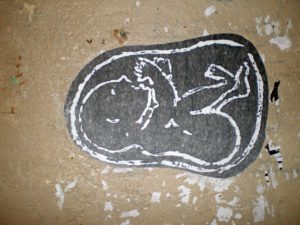The following excerpt is from Empire City: A Novel by Matt Gallagher. Reprinted by permission of Atria, a Division of Simon & Schuster, Inc. Copyright © 2020 by Matt Gallagher.
Empire City – Excerpt
Mia Tucker remained blindfolded. Someone to her left moaned and said they felt dizzy. A charging handle of a rifle was drawn, metal tonguing off against metal. A voice spoke to the moaner and to the group at once. “No. Noise.”
Like most pilots, the military had sent Mia to SERE school. Survival, Evasion, Resistance, Escape. She’d learned how to live off the land in any environment, from the Siberian tundra to the Amazon. She’d built smokeless fire pits from scratch. She’d killed a bunny with a trap made from sticks, gutted it with a belt clip, and turned it into kebab. She’d been waterboarded. None of that would help in a New York City ballroom seized by a militia of disaffected war veterans.
But the school had also included a sitting session on persuasion and influence. Most of the class slept through it, delirious at the chance to be off their feet for fifty minutes. But not Mia. She’d fought off the siren song and listened, because if there was anything worse than being a prisoner of war, it was being a woman prisoner of war. She’d wanted to know it all.
Two guards began speaking to each other. They talked low, wary of the ballroom’s acoustics, but not low enough. Mia bowed her head and homed in, like she was lost in benediction.
“This place is nice.”
“Rich people, man.”
“Yeah, I know. But still. See those chandeliers? All gold.”
“Think of how many of our people could be helped with just one of ’em. Keep focused.”
“Yeah.” A minute or so passed. “Ever seen anything like it before, though?”
The other voice considered. “Assad’s sun palace in Syria. Before the wogs blew it up.”
“Damn, you was over there then!” The veteran laughed. “You’re even older than I thought.”
“We were winning when I left. Then you trigger-happy bastards came along. The Found Generation, shit. You all messed up everything.”
They went back and forth like that, arguing about who had screwed up the Mediterranean Wars worse, when, and where. Thirty years of everlong war meant a lot of different iterations of it. They’d mentioned the sun palace. Mia racked her mind. The high palace had been in the hills surrounding Aleppo. The crescent palace lay in the center of Raqqa, near restaurant row. The state palace dominated what remained of Homs. The water palace floated alongside the island of Arwad. The sun palace, though . . .
“Idlib,” she said out loud, surprising herself. No turning back now, she thought. This is the right approach. For me. For them. For her.
Jesse hadn’t said so out loud, but Mia knew he wanted a girl.
“What was that?” The militants had heard her.
“Idlib,” Mia repeated. “The sun palace. I walked through the rubble there during my tour. Must’ve been amazing before the truck bomb.”
Through the threadbare of her blindfold, Mia saw the two men approach. What kind of group plans out something this complex, she wondered, but skimps on blindfold costs?
“You a vet?”
She nodded. “Army. Helo pilot out of Fort Sam Damon.”
“Chinooks?”
Mia sniffed. They thought she flew cargo. “Black Hawks. Mostly ripping through the Morning Isles, hunting down the last of the Greek radicals.”
That impressed them enough for her blindfold to be removed. The Morning Isles campaign had a reputation. She looked up to find two men of average stature and slung rifles, bafflement splayed across their clay faces. If they shaved their face stubble, they still could’ve been posting guard at any American outpost across the world.
“Bosses didn’t say anything about other vets being here,” the one who’d been admiring the chandeliers said. He looked like he should’ve been delivering Mormon pamphlets house-to-house, Mia thought, not committing terror. “Only rich people and generals.”
“How do we know you’re speaking truth?” the other guard asked. He was older, and wore the sad, dumpy face of someone who joined the military only to find the same assholes who’d made up his small town were everywhere. A short, barbed mustache would’ve framed his face had it been even.
“Tap my right leg,” Mia said. “Think a citizen has one of these?”
The leg clinked.
The older militant crossed his arms, and nodded. He’d figured her out, finally. “Officer,” he said.
Mia thought about lying, but quickly decided not to. Soldiers smelled out lies like hounds.
“Don’t hold it against me,” she said, offering just a hint of a smile. “You two worked for a living, I’m sure.”
The old joke landed. The militants asked about her deployments and units, she asked about theirs. They asked if she knew their old officers, and she did, a couple of them. She asked about the war tattoos covering their forearms, where they got them, what they meant. They told her. She asked if they’d had a hard time since getting out. They had. She asked if they’d loosen the cable ties around her wrists. They did. The younger one asked if she had a boyfriend. She said that she did, a husband, but left out the pregnant part. Babies scared boys. The older one asked why she’d come to the event tonight.
“Because I believe our government would benefit from having more people with military experience in it,” she said. “Who have skin in the game. We used to behave like a republic. I think we should get back to that.”
“What do you do now, ma’am?” he asked, dumpy face creasing out into corners. He was probing, still. Probably made a good barracks lawyer, Mia thought, explaining to his fellow joes how leadership was plotting against the regular soldier.
“Finance,” she said. “Middle management.” If she didn’t get control of the conversation again soon, they’d find her name and look her up, and then this little gambit of hers would backfire entirely. They’d believe a Tucker granddaughter would fetch a fortune. They wouldn’t be wrong.
There was a short cry to her left. Someone tipped forward and landed on their shoulders and forehead, forming a body caret. The two militants looked at each other, then at Mia.
“See if she’s okay,” Mia said. “I think that’s an older person.”
They helped the woman up, taking off her blindfold and binding her wrists in her lap, so she could lean back against the wall. Mia thought she recognized her—a college professor and civil rights activist who’d written a book about ethics, citizenship, and the International Legion.
In the midst of chaos, Mia thought, there is also opportunity. Some famous dead person had said that.
“You should get her water,” she said, loud enough for the two militants but also for the other hostages. The woman was aware but disoriented. “And maybe a wet towel? It’s really hot.”
The younger one took a step toward the bar but the older one stopped him. “Hey, officer. You’re not in charge here.”
Some of the other hostages were stirring and began grumbling; through their pantyhose blindfolds they could see the two armed guards looming over the professor, either feeling bad for her or feeling jealous that she’d been able to set her back against the wall.
“You’re in charge, absolutely,” Mia said, recalling from the SERE class the importance of projecting deference. “Just trying to help.”
“Uh huh.”
“Given how this could look. Like, media-wise.”
The older veteran’s nostrils flared. “Explain.”
“You have been very professional. But say this turns out to be serious, heatstroke, a concussion or something. Older black woman, mostly white vets . . . you know how reporters are. They might make it – well, racial.”
“We’re trying to recruit more people of color.” The younger militant looked upset. “It’s hard, though.”
“I’m a doctor.” One of the bound hostages spoke up. “I can check on her!”
The hostage next to him said, “Stop. You’re a dentist.”
“Everyone calm down!” the older militant shouted, pointing his rifle into the air. “We got this.” He looked back at Mia. “The Mayday Front supports people of all colors, creeds, and orientations. We work for the good of all warfighters. For anyone who’s done their part.”
“I know that,” Mia said. “But will citizens unfamiliar with your movement?”
Choice passed through the militants like wildfire. Soldiers loved to complain about the decision making of their sergeants and officers. It was a proud tradition, one ancient as battle itself. But Mia had seen this quizzical look before, many times. They either rose to the moment or they didn’t.
“We should let someone check her out,” the younger one said, putting his hand on the other’s shoulder. “The ma’am, she’s right. This could go bad.”
“We should’ve brought walkie-talkies,” the older one said, mostly to himself. “No one ever listens to me.” Then he said he was going to find their medic to treat the professor, which really meant asking someone else for guidance.
“Watch them close,” he told the other militant. “Back in ten.”
And just like that, Mia Tucker cut down the enemy force by half.
**
Former U.S. Army captain Matt Gallagher is the author of the novel Youngblood, published in February 2016 by Atria and a finalist for the 2016 Dayton Literary Peace Prize. He’s also the author of the Iraq memoir Kaboom and coeditor of, and contributor to, the short fiction collection Fire & Forget: Short Stories from the Long War. His work has appeared in The New York Times, The Atlantic, Esquire, The Paris Review Daily and Wired, among other places. A graduate of Wake Forest University, Matt also holds an MFA in fiction from Columbia University. He lives with his wife and son in Brooklyn and works as a writing instructor at Words After War, a literary nonprofit devoted to bringing veterans and civilians together to study conflict literature. Empire City, his second novel, was published in April by Atria.
**
Music by Catlofe







